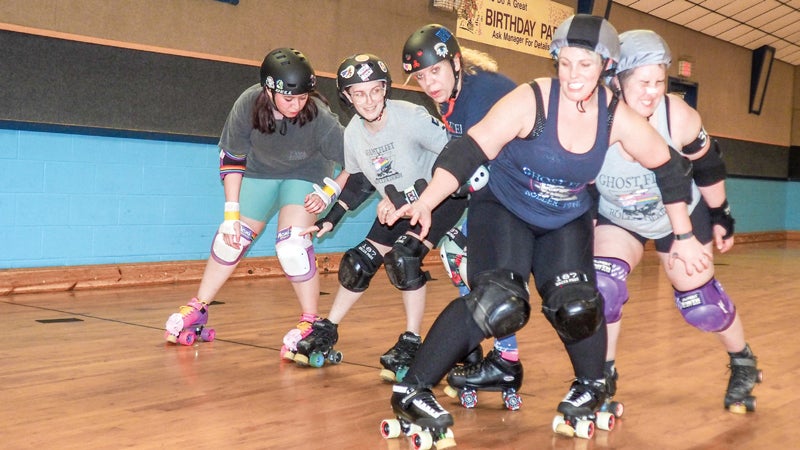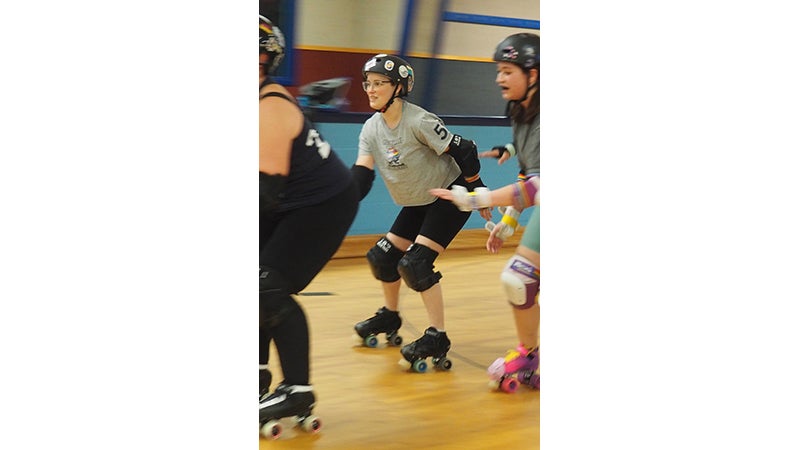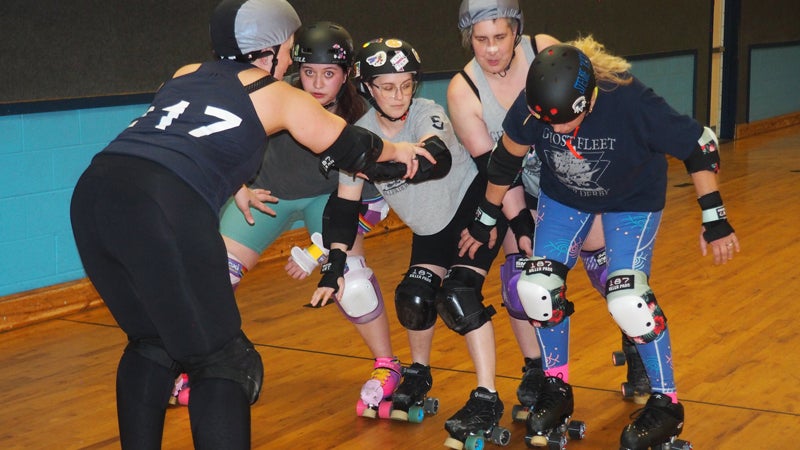DOWN AND DERBY: Smithfield’s ‘Ghost Fleet’ is all about self-expression, on roller skates
Published 9:14 pm Monday, March 27, 2023
On Thursdays and Sundays, Riley Holding goes by another name: “Ra-Punch-Zel.”
The Carrollton native’s chosen alias is a nod to Disney’s “Tangled” movie, a computer-animated adaptation of the Rapunzel story that’s been among Holding’s favorites since age 5.
By day, she’s a student at Virginia Peninsula Community College. By night, she’s the youngest skater on Smithfield’s Ghost Fleet Roller Derby team.
Roller derby is a full-contact women’s sport played on roller skates. A 2019 New York Times feature on the history of the unusual sport, which originated in the 1930s, describes games as “part endurance race, part wrestling match.”
Theresa Nagel, one of the team’s founding members and its marketing director, goes by the name “Tramplin’ Trixie” when on the track. Creating an alias and alter ego character is part of the tradition of the sport.
The team practices Thursday evenings and Sunday mornings at the Smithfield Skate rink on Wimbledon Lane.
On March 23, skaters were just starting to arrive by 6:30 p.m., and get into gear, which includes knee pads, elbow pads, mouth guards, helmets, and, of course, roller skates.
Games against other teams are divided into 30-minute halves, Nagel explained. At any given moment during this time, five skaters from each team will be traveling counter-clockwise around the track.
Only two skaters, one from each team, are allowed to score points. They wear a star on their helmets designating themselves as “jammers.” Whoever is the first to pass all of her teammates during the initial lap around the track is designated the team’s lead jammer.
The other four skaters on each team are called “blockers” and together form a “pack.” It’s their job to keep the other team’s jammer from scoring by forcing her out of bounds or physically preventing her forward movement.
Jammers score points for every blocker whose hips they pass. One of the blockers will wear a stripe on her helmet designating herself as the team’s “pivot.” Pivots are the only blockers allowed to accept the star and become the team’s new jammer mid-game.
Blockers and the opposing jammer can – and do – hit each other, provided they stay within designated “target zones” on their opponents’ bodies. According to the Women’s Flat Track Derby Association, the sport’s nationwide governing body, skaters cannot make contact with their opponents’ heads, backs, knees, lower legs or feet. Those who do so are assessed a penalty, which is served by sitting in a “penalty box” for 30 seconds of jam time. A jam can last up to 2 minutes.
Emily Reiter, the team’s most experienced skater, goes by “Star Foxy.” She wanted a space-themed name and “Astro-Naughty” was taken.
Nagel and Reiter are each veterans. Nagel, an ex-Marine, credits a deployment to Japan with introducing her to the sport. Reiter, who’s active-duty Navy, said she always loved full-contact sports and grew up playing soccer.
But the sport isn’t just for athletes and military members in the best shape of their lives. In fact, welcoming any athletic ability and body type – to include transgender and non-binary people – is a core commitment of the Women’s Flat Track Derby Association, the nationwide regulatory body for the sport.
Ghost Fleet is no exception. The team’s referee, Stevie Knight, uses “they/them” pronouns and designed the Ghost Fleet logo to feature a two-masted ship with LGBTQ pride flags for its sails.
Knight, a stay-at-home parent by day, goes by “Hurt McKraken” on the track. The name is a nod to Knight’s taste for crab rangoon and favorite singer, Bert McCracken of the rock band “The Used.”
Roller derby, and its traditions, give people an “opportunity to express themselves in ways they ordinarily wouldn’t,” Nagel said.
The team’s name is a nod to the James River Reserve Fleet, or “Ghost Fleet” as it’s known locally. The fleet of decommissioned naval vessels, which has dwindled in number over the years, can still be seen from the Isle of Wight County shoreline.
Holding didn’t even know how to skate when she joined the team. She was just looking for something to help her blow off steam from the stress of college, so Nagel taught her.
“You join the team, you get a new family,” Knight said.
The team, which operates as a nonprofit organization, only formed last year. Nagel said prior to that, the two closest teams were in Virginia Beach or Richmond, more than an hour’s drive away.
The team plays its games at the Peninsula Family Skate rink in Newport News. The Smithfield Skate rink, Nagel explained, isn’t large enough to meet women’s flat-track regulations. The team is in the process of looking for a more local site to host games. The team also fundraises for the Special Olympics and other community efforts.








